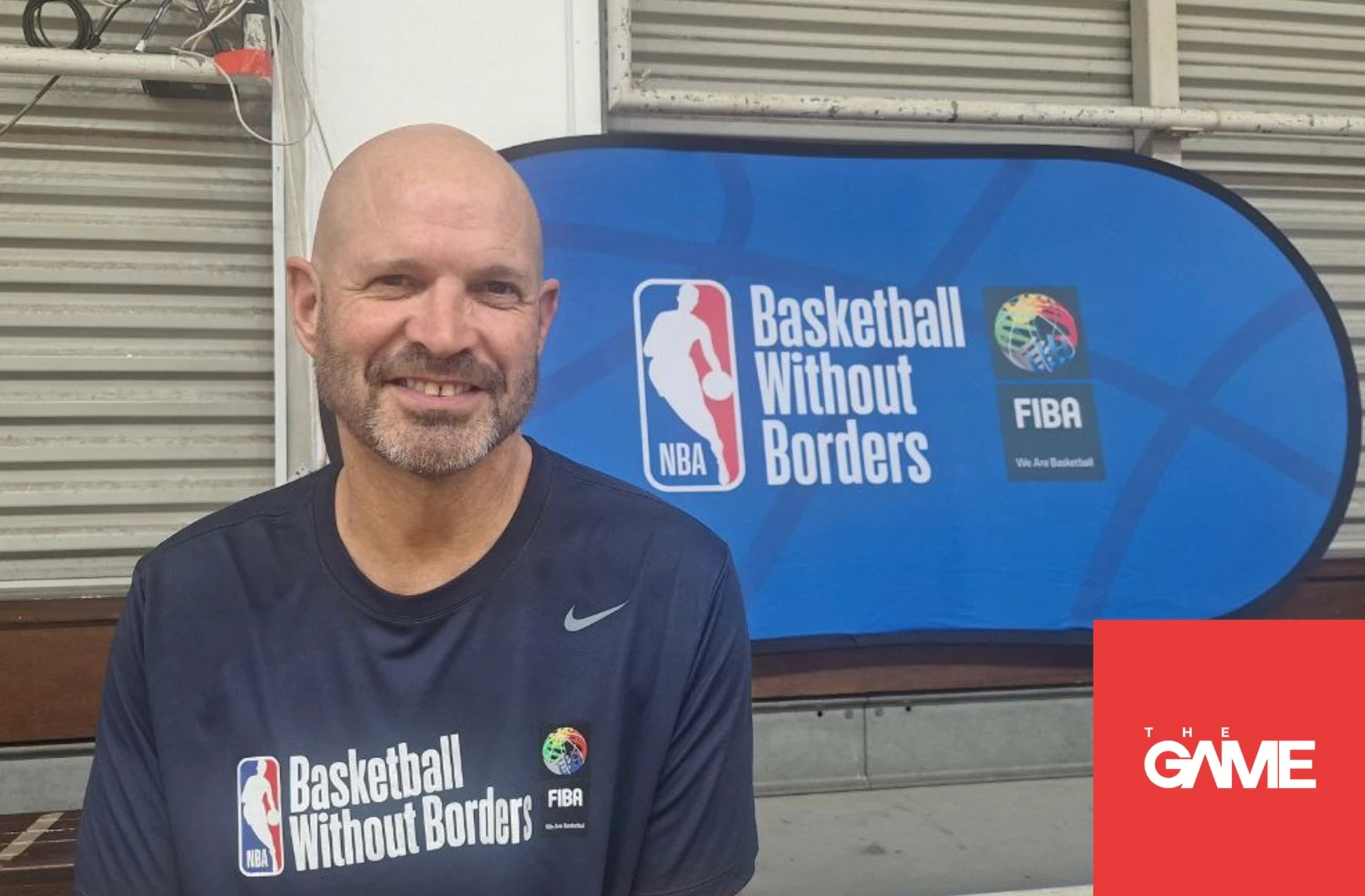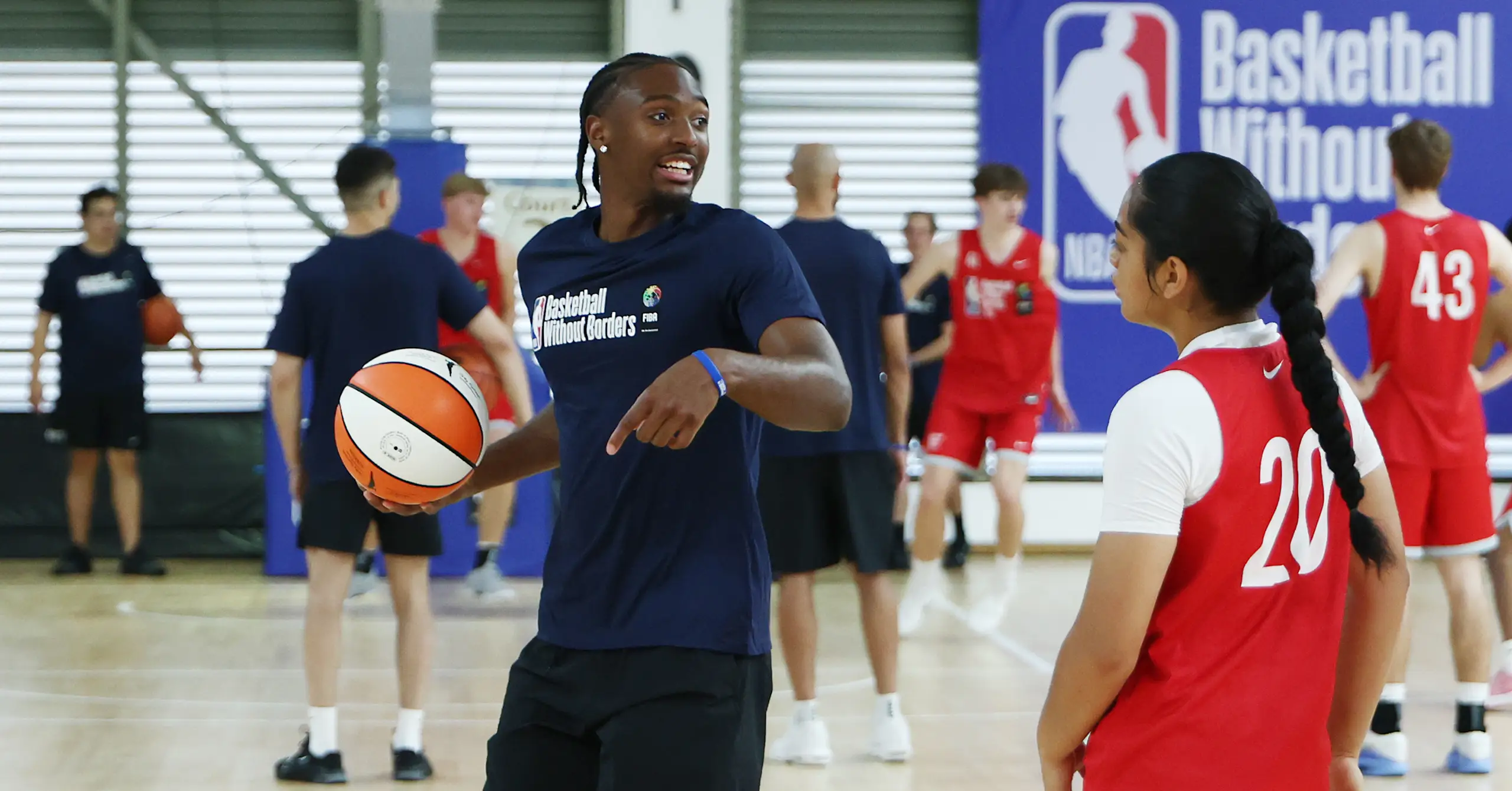Basketball Without Borders has been a global talent incubator for 24 years now. And it just keeps getting bigger and better.
SINGAPORE – Chances are, you know at least one NBA player who is a graduate of Basketball Without Borders.
After all, we’re talking about a talent identification and development program that has eyes and ears in all corners of the globe, ready to unearth the next global basketball superstar.
It all started in 2001, a partnership between the two biggest basketball entities on the planet: FIBA and the NBA. Their mantra can be summed up in four words – represent, inspire, showcase, grow.
Today, BWB holds four annual camps around the world that attract the best young talent in their respective regions, with the end goal of sending even just a few of them to the NBA.
“This is the 24th year,” Troy Justice, NBA Head of International Basketball Operations, told The GAME in an exclusive interview in Singapore where the Asian camp is being held this year. “This is our 80th Basketball Without Borders camp. And 132 players from this camp have either gone to the WNBA or the NBA over those 24 years.
“The program is the number one global talent basketball camp in the world. We have four each summer, one in Asia, one in the Americas, one in Europe, and one in Africa. And then the best players from all of those camps this summer will come to our Basketball Without Borders global camp, which is held during NBA All-Star Weekend this next year in Los Angeles.”
When asked to name BWB graduates who eventually found their way to the NBA, Justice smiled.
“Yes, there’s a player, his name is Shai Gilgeous-Alexander, who is our (NBA) MVP. He was one of the players in this camp. And Jamal Murray, Benedict Mathurin, who’s in the (NBA) Finals. Pascal Siakam, who’s in the Finals with the Pacers. There’s so many incredible players. Joel Embiid, who was an MVP that we all know. The list goes on and on. And I will say that there was, from Asia, we had Rui Hachimura. We’ve had Josh Giddey, Josh Green, Kai Sotto.”
Siakam and Embiid are prime examples of incredibly raw talents who were discovered in Africa and trained properly by BWB, setting them both on the path to the NBA.
“So many players who have been through this program. And so it’s a camp that brings the world together. The NBA mission statement is to inspire and connect people everywhere through the power of basketball. And that’s what this camp does. It inspires the campers.”
This year, NBA champion Derrick White of the Boston Celtics and NBA All-Star Tyrese Maxey lead the group of coaches who are mentoring 60 of the best 17-and-below players from Asia.
But it’s not just the youngsters who are getting NBA-level teaching. BWB also has training sessions for coaches and referees.
“We work with FIBA as our partner for the Basketball Without Borders program,” Justice said. “And we have the president of the World Association of Basketball Coaches here. I also sit on that committee for World Association of Basketball Coaches. Our desire is to educate, teach, and transfer knowledge so that coaches can grow. And what we do at Every Basketball Without Borders is we have a clinic for coaches in partnership with the local federation and with FIBA Asia.
“We’re doing referee training with Joey Crawford, a legend in the NBA. He’s here training the referees.”

Spotting and nurturing talent
Kids play basketball in virtually every country, but not every country has the infrastructure or system to properly develop them. So the NBA set up a global scouting network to quickly identify potential talents as young as 14 years old. Justice said BWB is just one component of their mission.
“We’re constantly evaluating players around the world and giving them an opportunity that they may not have otherwise through programs like Basketball Without Borders. We have another program called NBA Academy. We do the same thing. We scout young talent. In fact, there’s a player who will be a lottery pick in this year’s draft from our Africa Academy.”
Justice is referring to South Sudan’s Khaman Maluach, an 18-year-old center who played for the Duke Blue Devils and is projected to be a high pick in next week’s NBA draft.
“We found him in Uganda, and he was a football player. And we gave him an opportunity because we were scouting talent at a young age. And now he’s going to be drafted next week. And so this is what we’re trying to do by building basketball globally.”
To date, there are four NBA Academies – NBA Latam Academy in Mexico, the Global Academy in Australia, and the Africa Academy in Senegal. Each academy has only 24 players.
“It’s very important to have global representation in all of our programs,” Justice said. “We look for diversity. We look for different skill sets. We look for different regions. So, when we’re identifying those athletes, we’re looking really for those who need it the most. And represent the greatest opportunity and potential for the future.”
What it takes to be elite
Historically, Filipino players have been picked to participate in almost all Basketball Without Borders Asia camps. This year, Rob Celiz of NUNS and Paul Barcelona from Bacolod got the call-ups.
However, only a handful of Filipino have made it to the main event, the Basketball Without Borders Global Camp held during NBA All-Star Weekend. Kai Sotto, AJ Edu and Andy Gemao were among the lucky ones.
When asked what Filipino players need to work on to get more invites to the Global Camp, Justice gave a straightforward answer.
“Well, it’s the same reason that the greatest NBA players are great. And that is the mastery of the fundamentals. It’s not about how tall you are. It’s not about how fast you are. It’s not about how high you can jump. It’s a mastery of the fundamentals of the game.
“And so, you have to become excellent, at least in one thing. If not multiple things. But you have to become excellent. You can’t be average. You can’t be good. You can’t be above average. You have to be great. And in order to do that, it’s the same thing. It’s the habits of daily practice. And becoming the best in the world at what that is. And to do that, it’s repetition.”
An elite player, Justice adds, should be able to do more than just putting the ball in the hoop.
“Coaches aren’t looking for guys that can score a lot of points. They’re looking for excellence in particular areas of the game. It’s like a superpower. You have to have a superpower to be great. And so, that would be my challenge to young players, to coaches, to parents.”
But above all, Justice said players should enjoy what they’re doing.
“The last thing I would say is you should play with joy. In fact, we have Tyrese Maxey here from the Philadelphia 76ers. And if you watch him play, he plays with a smile on his face. He plays with incredible energy, and he plays with poise. And it’s this joy that he plays with that makes him great.”
Images from the Basketball Without Borders Asia and Sid Ventura
